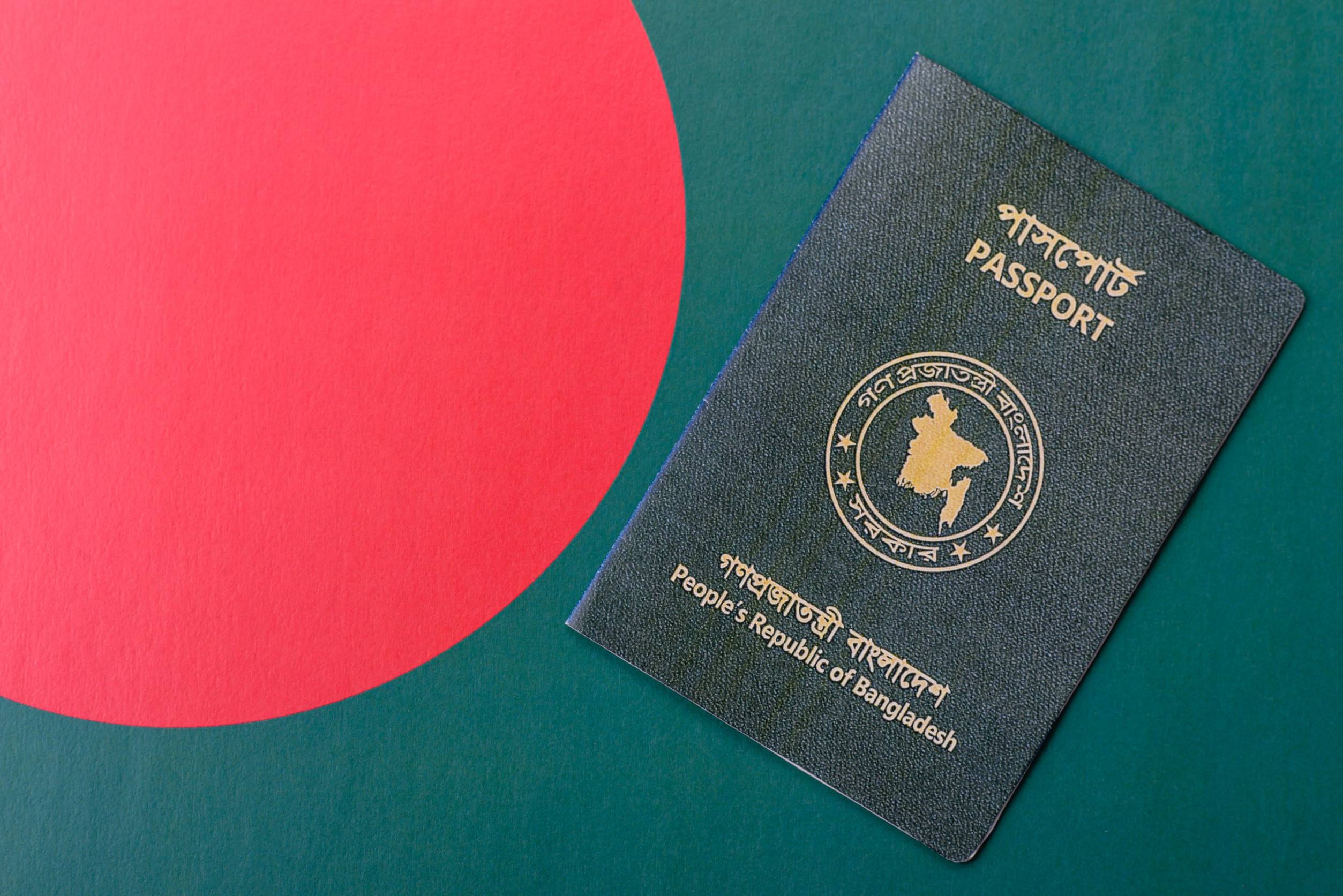
Ethiopia, with its fascinating history, diverse landscapes, and vibrant culture, has become a sought-after destination for global travelers, including citizens of Bangladesh. To visit Ethiopia, Bangladeshi citizens may be required to obtain an Ethiopia e-Visa in advance. The Ethiopian government has implemented an electronic visa system, streamlining the visa application process and enabling visitors to easily obtain their travel authorization online.
Who can avail the Ethiopian e-Visa and what does it entail?
The Ethiopian e-Visa is available to citizens of eligible countries, including Bangladesh, who wish to visit Ethiopia for tourism, conference, or Investment purposes. The e-Visa allows travelers to enter Ethiopia and stay for a specified period, as indicated on the visa. It is important to note that the e-Visa is not valid for employment purposes.
It involves applying online, submitting personal and passport information, and paying the visa fee. Once approved, you'll receive an e-Visa approval letter via email. Upon arrival, present the approval letter and other required documents at the immigration counter for verification. The e-Visa simplifies the application process and eliminates the need for in-person visits to embassies or consulates.
Advantages of the Ethiopian e-Visa for Bangladesh Visitors
Travelers from Bangladesh planning to visit Ethiopia can benefit from the convenience offered by the Ethiopian e-Visa. Here are some key points highlighting the advantages of the e-Visa:
- Online Application: Bangladeshi citizens can effortlessly apply for the Ethiopian e-Visa online from any location with an internet connection. This eliminates the need for physical visits to an embassy or consulate, offering enhanced convenience.
- Time-Saving: The e-Visa application process is streamlined, saving valuable time compared to traditional visa applications. Travelers can complete the online application form, electronically submit the required documents, and bypass lengthy paperwork.
- Accessibility: The online application system ensures convenience for Bangladeshi travelers, allowing them to apply for the e-Visa at their preferred time and location. This accessibility enhances the overall convenience of the visa application process.
- Quick Processing: Once submitted, the Ethiopian authorities typically process e-Visa applications promptly. This enables travelers from Bangladesh to receive a swift response, facilitating timely travel arrangements.
- Electronic Delivery: Approved e-Visas are delivered electronically to applicants via email. This eliminates the need for physical document handling and enables travelers to conveniently carry their e-Visa confirmation in digital format.
- Secure and Reliable: The Ethiopian e-Visa system prioritizes the secure transmission and handling of personal and travel information. Travelers can trust the reliability and privacy of their data throughout the application process.
Checklist for Travelers from Bangladesh: Essential Documents to Prepare
If you are a citizen of Bangladesh planning to apply for the Ethiopian e-Visa, make sure to gather the following essential documents required for Ethiopia e-Visa :
- Valid Passport: Ensure that your passport is valid and has a minimum validity of six months beyond your intended stay in Ethiopia.
- Passport Scan: You will need to provide a clear, colored scan of the biographical page of your passport during the e-Visa application process.
- Passport-Size Photo: Prepare a recent passport-sized photo in digital format, as you will be required to upload it during the application.
- Payment Method: Have a valid credit or debit card ready for online payment of the e-Visa application fee.
- Supporting Documents: Depending on the type of visa you are applying for, be prepared to submit any additional documents requested by the e-Visa application system. This may include a letter of invitation or proof of the purpose of your visit, especially for visa types other than tourist visas.
Smoothly Applying for the Ethiopian e-Visa: A Guide for Citizens of Bangladesh
Applying for an Ethiopian e-Visa can be a smooth process for citizens of Bangladesh. By following these simple steps, you can obtain your visa efficiently and without any hassle.
- Visit the official Ethiopian e-Visa website.
- Fill out the Ethiopia e-Visa application form accurately with your personal information, travel details, and passport information.
- Upload a scanned copy of your passport's biodata page and a recent passport-sized photograph.
- Review and submit your application.
- Pay the visa fee using the available online payment options.
- Wait for the confirmation email, which will include your e-Visa approval letter.
- Print a copy of your e-Visa approval letter to present upon arrival in Ethiopia.
- Make sure your passport is valid for at least six months beyond your intended stay in Ethiopia.
- Upon arrival, proceed to the immigration counter and present your passport, e-Visa approval letter, and other required documents for verification.
Navigating the Processing Time for Bangladeshi Citizens Applying for an Ethiopian e-Visa
Processing times for Ethiopian e-Visa applications may vary for Bangladeshi citizens depending on the chosen processing option. Here are three options and their corresponding expected processing times:
- Normal Processing: The normal processing option usually takes (5 - 8 Working Days) for Bangladeshi citizens to receive the approved e-Visa.
- Rush Processing: Opting for rudh processing reduces the processing time, with an expected duration of (2 - 5 Working Days) for Bangladeshi applicants.
- Super Rush Processing: For those in need of the fastest turnaround time, the super rush processing option is available, providing the approved e-Visa within (1 - 3 Working Days) for Bangladeshi citizens.
Demystifying the Cost: Ethiopia e-Visa Fees for Citizens of Bangladesh
The fees for Ethiopian e-Visa may vary for citizens of Bangladesh depending on factors such as visa type, processing preference, and entry prefernce. To obtain the most up-to-date and accurate fee information, it is recommended that Bangladeshi travelers visit the website. By referring to the fee page or utilizing the given fee tool, they can determine the exact cost of the e-Visa based on their specific travel requirements. This will ensure they have precise information regarding the fees associated with their e-Visa application.
Do Bangladeshi travelers have the option to extend their e-Visa during their stay in Ethiopia?
The possibility of extending an e-Visa for Bangladeshi travelers during their stay in Ethiopia is subject to the discretion of the Ethiopian immigration authorities. It is advisable for Bangladeshi travelers to contact the Ethiopian Immigration, National and Vital Events Agency in Addis Ababa, the capital city of Ethiopia, for detailed information on the extension process, requirements, and any associated fees. It's important to note that the extension of Ethiopia e-Visa is not guaranteed, and travelers should plan their stay within the initially granted e-Visa validity to avoid any visa-related issues.
Ethiopian Traditions and Customs: Cultural Etiquette for Bangladeshi Travelers
Ethiopia is a country with rich traditions and customs, and as a Bangladeshi traveler visiting Ethiopia, it is important to be aware of the cultural etiquette to respect and appreciate the local customs. Here are some key points to keep in mind:
|
Etiquette |
Description |
|
Greetings |
Ethiopians value greetings and it is customary to greet people with a handshake and a smile. |
|
Politeness |
Ethiopians appreciate politeness and it is customary to use polite language and honorifics when addressing others, especially elders. |
|
Dress Code |
Ethiopians dress modestly, and it is advised to dress respectfully, particularly when visiting religious sites. Women may prefer to cover their shoulders and wear skirts or pants that cover the knees. |
|
Dining Etiquette |
Ethiopians often eat with their hands, using injera (a type of bread) to scoop up food. When invited to someone's home for a meal, wash your hands before eating and eat with your right hand. |
|
Respect for Religion |
Ethiopia is predominantly Christian or Muslim, so it is important to dress modestly, remove shoes when required, and follow specific customs when visiting religious sites. |
|
Cultural Sensitivity |
Be respectful and sensitive towards local customs, traditions, and beliefs. Avoid criticizing or mocking cultural practices and be open to learning and experiencing the local way of life. |
|
Photography |
Always ask for permission before taking photographs, especially of individuals in rural areas. Some people may prefer not to be photographed for cultural or religious reasons. |
Exploring Ethiopia's Culinary Delights: Food and Drink Experiences for Bangladeshi Travelers

Ethiopian cuisine is known for its unique flavors, rich spices, and communal dining traditions. As a Bangladeshi traveler visiting Ethiopia, here are some food and drink experiences to enhance your culinary journey:
|
Culinary Experience |
Description |
|
Injera and Wats |
Try Ethiopia's national dish, injera, a sourdough flatbread served with a variety of wats (stews) made from lentils, vegetables, or meat. |
|
Kitfo |
Sample kitfo, a traditional Ethiopian dish made from minced raw or lightly cooked beef, seasoned with spices and served with injera. |
|
Coffee Ceremony |
Experience a traditional Ethiopian coffee ceremony, which involves roasting, grinding, and brewing fresh coffee beans, while enjoying the aromatic flavors and hospitality of the hosts. |
|
Tej |
Taste tej, a traditional Ethiopian honey wine made from fermented honey, infused with herbs and spices. It is a sweet and potent beverage enjoyed on special occasions or with meals. |
|
Street Food |
Explore Ethiopia's vibrant street food scene and try popular snacks like doro wat (spicy chicken stew), samosas, ful medames (stewed fava beans), and roasted corn. |
|
Cultural Restaurants |
Visit cultural restaurants that offer traditional Ethiopian music and dance performances alongside a variety of local dishes, providing an immersive cultural experience. |
|
Spice Markets |
Explore local spice markets and discover the diverse array of spices used in Ethiopian cuisine, such as berbere, mitmita, and niter kibbeh, which can be purchased for your own culinary adventures. |
Frequently asked questions
Citizens of eligible countries, including Bangladesh, who plan to visit Ethiopia for tourism, business, or transit purposes.
The e-Visa is typically valid for either 30 or 90 days or more, depending on the type of visa chosen during the application process.
Yes, children, including infants, require a separate e-Visa. Each traveler, regardless of age, must have their own individual e-Visa.
A printed copy of the e-Visa approval letter is generally recommended for presentation at the immigration counter upon arrival. However, it's also advisable to carry a digital copy as a backup in case of any unforeseen circumstances.
No, the e-Visa is designed for obtaining a visa prior to arriving in Ethiopia. If you are already in Ethiopia and need to extend your stay or change your visa status, you should contact the appropriate immigration authorities within the country.
Yes, you can apply for an e-Visa even if you are traveling with a tour group. Each individual traveler must complete their own e-Visa application, providing their personal information and necessary documents.
